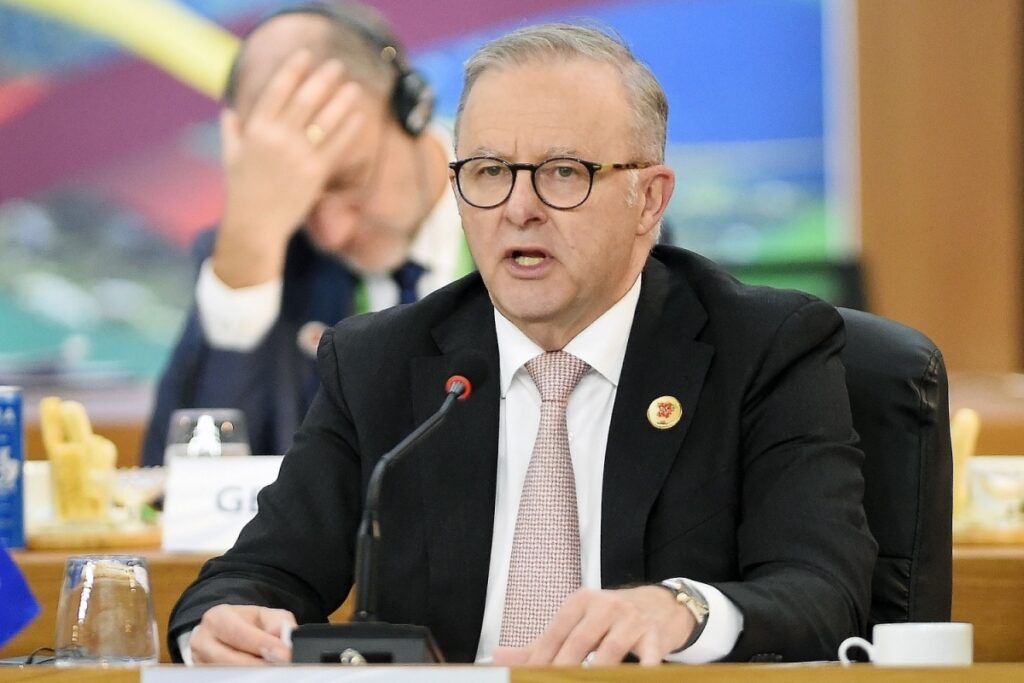Australia is actively urging China to restore iron ore shipments, following what its government describes as an abrupt and powerful disruption to trade that has affected major mining firms.
Deteriorating Trade Ties and Supply Disruption
After years of increasing tension between the two nations, Australia’s Prime Minister Anthony Albanese has publicly called on China to reverse what he terms “arbitrary” restrictions that have singled out Australian iron ore. The issue has rattled industry players and poses broader risks to bilateral economic relations.
The disruption has already hampered production plans and created uncertainty for major exporters. BHP, one of Australia’s largest mining companies, reportedly had its volumes cut by about 40 million tonnes for the 2024–25 financial year because of reduced Chinese demand. Chinese authorities, for their part, have declined to confirm that any official ban or quota on Australian iron ore exists.
Strategic and Economic Stakes
Iron ore represents a central pillar of Australia’s mining exports and accounts for a significant share of national export earnings. China is one of the world’s largest importers of iron ore, so any obstruction in that trade corridor has immediate consequences. The shift in buying patterns has suddenly put pressure on mining firms, some of which are scrambling to find alternate markets or absorb losses.
While Australia’s government frames the disruption as a politically motivated act, others interpret it as part of a broader recalibration of China’s resource sourcing, possibly aimed at prioritizing domestic or regional suppliers. The Australian government, mining executives, and trade analysts all view the situation as a test of how far China may go in leveraging economic tools amid geopolitical friction.
Diplomatic Appeals and Industry Response
Mr. Albanese described the restrictions on iron ore imports as “an escalating pattern” and emphasized that Canberra is working through all channels to reestablish stable trade flows. He expressed disappointment with Beijing’s position and stressed the importance of “predictable commercial conduct” between the countries.
Senior officials in China have offered limited responses. They insist that trade decisions are based on commercial, environmental, and technical grounds. They also assert that some Australian iron ore shipments have failed to meet standards or contractual requirements. Beijing has not publicly acknowledged any targeted phase-out of Australian minerals.
In the private sector, mining firms are undertaking damage control. They are jointly lobbying governments and exploring options to diversify export destinations. Some have warned that prolonged disruption would intensify volatility in global commodity markets, especially in steelmaking inputs.
Broader Implications and Market Risks
The standoff over iron ore may accelerate a deeper reorientation in China’s approach to resource imports. Already, analysts see signs Beijing is shifting toward alternatives—whether from other nations or from its own domestic reserves. Such moves could erode Australia’s leverage in raw materials markets.
On the global front, markets sensitive to steel and construction inputs are watching closely. Any sustained squeeze on iron ore availability could ripple into increased costs in infrastructure and manufacturing sectors.
In Australia, the political stakes are also high. The government faces pressure from industry and regional economies reliant on mining revenue to force a more assertive response if diplomatic appeals fail.
While Australia renews its efforts to reestablish trade continuity with China, the iron ore disruption underscores how resource exports increasingly intersect with politics in the Indo-Pacific.



